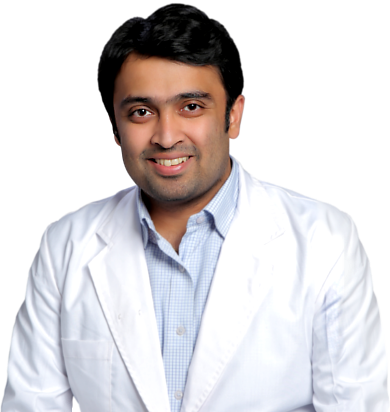FAQ's
What to expect after surgery
Immediately after Surgery
For the first 4 days
For the first 6 weeks
Continue medications for other diseases if any No additional diet restriction after cataract surgery Potential complications with cataract surgery
Special concerns
Emergency care
Contact your doctor immediately if you have
Important points for diabetic patients
- On discharge from the surgery center, patients will be given the next review date.
- Also depending on the type of incision and surgeon preference, some patients will be asked to wear a shield over the eye.
Immediately after Surgery
- Use protective glasses when riding in a car or walking outdoors. You can brush your teeth.
- Activities such as reading, watching television, and light work will not hurt the operated eye. The great majority of patients may resume light activities on the day after surgery
For the first 4 days
- Avoid head bath and face washing (use tissue or moist towel instead)
- Avoid sleeping on the operated side (lie flat or on the other side)
- AMen may shave with caution
For the first 6 weeks
- Eye Dr.op medications will be required, usually consisting of antibiotic and anti-inflammatory medicines. These will often be tapered off during the first 4 to 6 weeks after surgery.
- Use protective glasses for 6 weeks to prevent injury and dust and dirt from entering the eye.
- The eye should not be rubbed.
- New glasses are prescribed after 1 to 4 weeks
- You can resume your normal activities after 1 week, unless specifically advised by you doctor
Continue medications for other diseases if any No additional diet restriction after cataract surgery Potential complications with cataract surgery
- Though cataract surgery is one of the most successful procedures in all of medicine, complications may still occur.
- Most complications are minor, such as swelling of the cornea or retina, increased pressure in the eye, and Dr.oopy eyelid.
- These complications usually resolve with medications and continued healing time.
- Over 98% of cataract surgeries are successfully completed without surgical complications, and more than 95% of patients have improved vision.
- In general, the risk of severe visual loss is very rare, but may occur as a result of infection or bleeding inside the eye, or even retinal detachment, which may occur months or years after a perfectly successful cataract surgery.
- bleeding inside the eye, or even retinal detachment, which may occur months or years after a perfectly successful cataract surgery.
Special concerns
- Some symptoms are normal in the immediate post operative period.
- Pain : You may have occasional discomfort or foregin body sensation ( like dus'c. fallen in the eye) after returning home. The eye Dr.ops will help to relieve it. In addition you may use any over the counter pain medicine (expect plain aspirin).
- Reslness The redness will gradually disappear with the Dr.ops.
- Watering Some amount of watering from eyes is normal and gradually reduces over a couple of weeks
- The best vision may not be obtained until few weeks following surgery, but individual results vary considerably, depending on many variables.
- In general, the risk of severe visual loss is very rare, but may occur as a result of infection or bleeding inside the eye, or even retinal detachment, which may occur months or years after a perfectly successful cataract surgery.
- bleeding inside the eye, or even retinal detachment, which may occur months or years after a perfectly successful cataract surgery.
Emergency care
- If you have an emergency, call the emergency. phone number.
Contact your doctor immediately if you have
- Worsening of the vision
- Severe pain with or without associated vomiting
- Increasing redness of the operated eye.
- Pus Discharge
Important points for diabetic patients
- Proper and strict control of Blood Sugar reduces the ocurrence and complications of diabetic retinopathy.
- Regular check up (fundoscopy) from your eye surgeon helps you maintain useful vision.
- Computer examination for spectacles does not give any indication of retinal disease.
- Laser is not a permanent cure but a treatment to control the diabetic retinopathy and can prevent its blinding sequele.
- Majority of diabetics can retain good vision by prompt management of their eye problems.
- Awareness and knowledge fo organ damage, possible by diabetes, is the key to prevent and manage it successfully.







